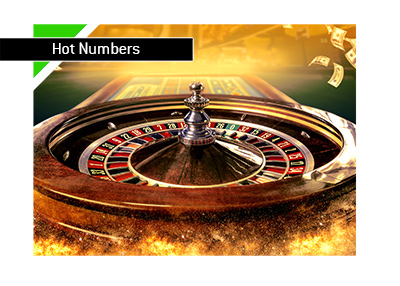Roulette Strategy Gambler's Fallacy
As human beings, we’re naturally wired to look for patterns in the world around us. Unfortunately, this also leads to a tendency to see patterns where they don’t actually exist. This tendency is at the heart of the Gambler’s Fallacy, also known as the Monte Carlo Fallacy.
The name “Monte Carlo Fallacy” comes from an incident in Monte Carlo in the summer of 1913, when a roulette wheel came up black fifteen times in a row. Gamblers decided that red <i>had</i> to come up soon, and bets on red rained down on the table. As black came up again and again, the players increased their stakes, becoming fanatically convinced that red was due. In the end, the wheel hit black twenty-six times, and the players who bet on red had been cleaned out of millions of francs.
Only Bet Short-Term Roulette Strategies. Lots of roulette strategies aim to make a 1-unit profit per session. Unless your units are in hundreds or thousands, it’s not enough to make a real difference anyway. But for the sake of argument, let’s assume that winning 1 unit a session is the be-all and end-all for winning roulette. Gamblers fallacy originated from the roulette of Monte Carlo The most well-known example this phenomenon happened from the game of roulette in the Monte Carlo Casino on August 18, 1913, as soon as the ball dropped in black 26 times in a row. The gambler's fallacy, also known as the Monte Carlo fallacy or the fallacy of the maturity of chances, is the erroneous belief that if a particular event occurs more frequently than normal during the past it is less likely to happen in the future (or vice versa), when it has otherwise been established that the probability of such events does not depend on what has happened in the past.

The Gambler’s Fallacy, simply stated, means forgetting that a roulette wheel, like other gambling devices, is random. The wheel has no memory, and the results of one spin have no effect on the results of future spins. As long as the wheel is fair, past results cannot be used to predict future outcomes. Even if the ball stops at 23 five times in a row, the odds of it stopping at 23 will be exactly the same for every future spin.
The Gambler’s Fallacy shows up when players look for “streaks” or “hot” numbers. Conversely, as in the Monte Carlo example, it can also lead players to assume that a certain bet is “due” because it hasn’t won in a while.
Roulette Strategy Gambler's Fallacy Argument
In the heat of a gambling session, when you’re looking for any advantage you can get to cut the house’s edge, it can easy to forget you’re playing an essentially random game. Don’t fall into the trap of looking for patterns where there are none, or trying to predict the future based on random information.
Roulette Strategy Gambler's Fallacy Hasty
As human beings, we’re naturally wired to look for patterns in the world around us. Unfortunately, this also leads to a tendency to see patterns where they don’t actually exist. This tendency is at the heart of the Gambler’s Fallacy, also known as the Monte Carlo Fallacy.
The name “Monte Carlo Fallacy” comes from an incident in Monte Carlo in the summer of 1913, when a roulette wheel came up black fifteen times in a row. Gamblers decided that red <i>had</i> to come up soon, and bets on red rained down on the table. As black came up again and again, the players increased their stakes, becoming fanatically convinced that red was due. In the end, the wheel hit black twenty-six times, and the players who bet on red had been cleaned out of millions of francs.
The Gambler’s Fallacy, simply stated, means forgetting that a roulette wheel, like other gambling devices, is random. The wheel has no memory, and the results of one spin have no effect on the results of future spins. As long as the wheel is fair, past results cannot be used to predict future outcomes. Even if the ball stops at 23 five times in a row, the odds of it stopping at 23 will be exactly the same for every future spin.
The Gambler’s Fallacy shows up when players look for “streaks” or “hot” numbers. Conversely, as in the Monte Carlo example, it can also lead players to assume that a certain bet is “due” because it hasn’t won in a while.
In the heat of a gambling session, when you’re looking for any advantage you can get to cut the house’s edge, it can easy to forget you’re playing an essentially random game. Don’t fall into the trap of looking for patterns where there are none, or trying to predict the future based on random information.